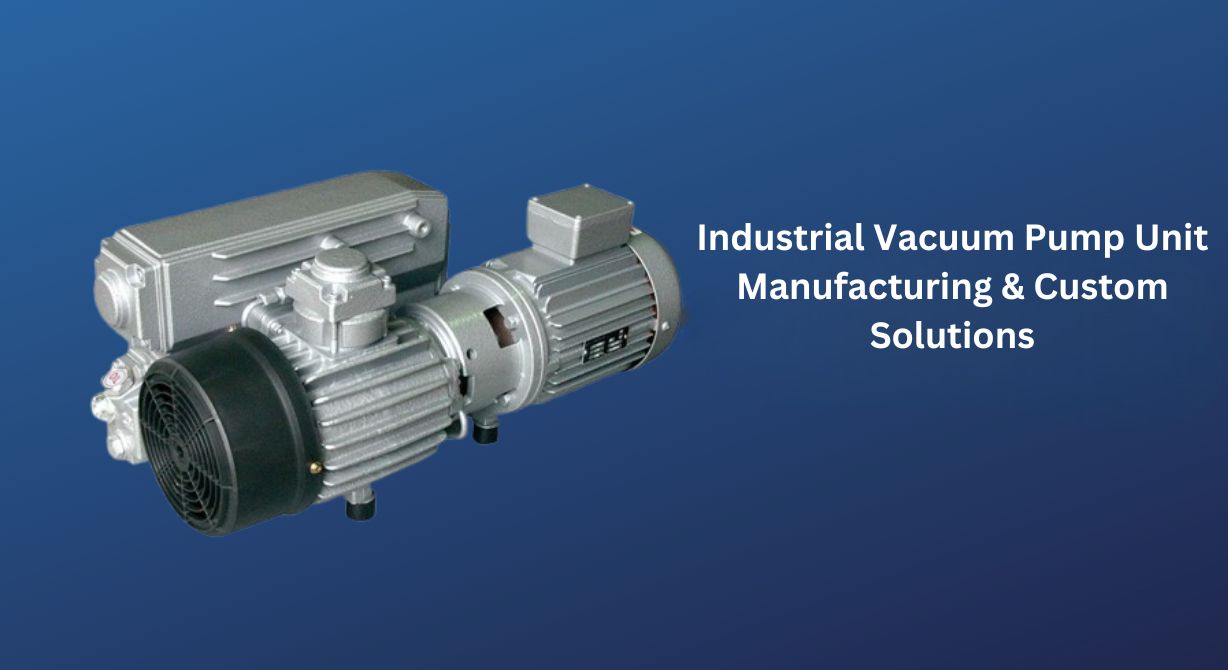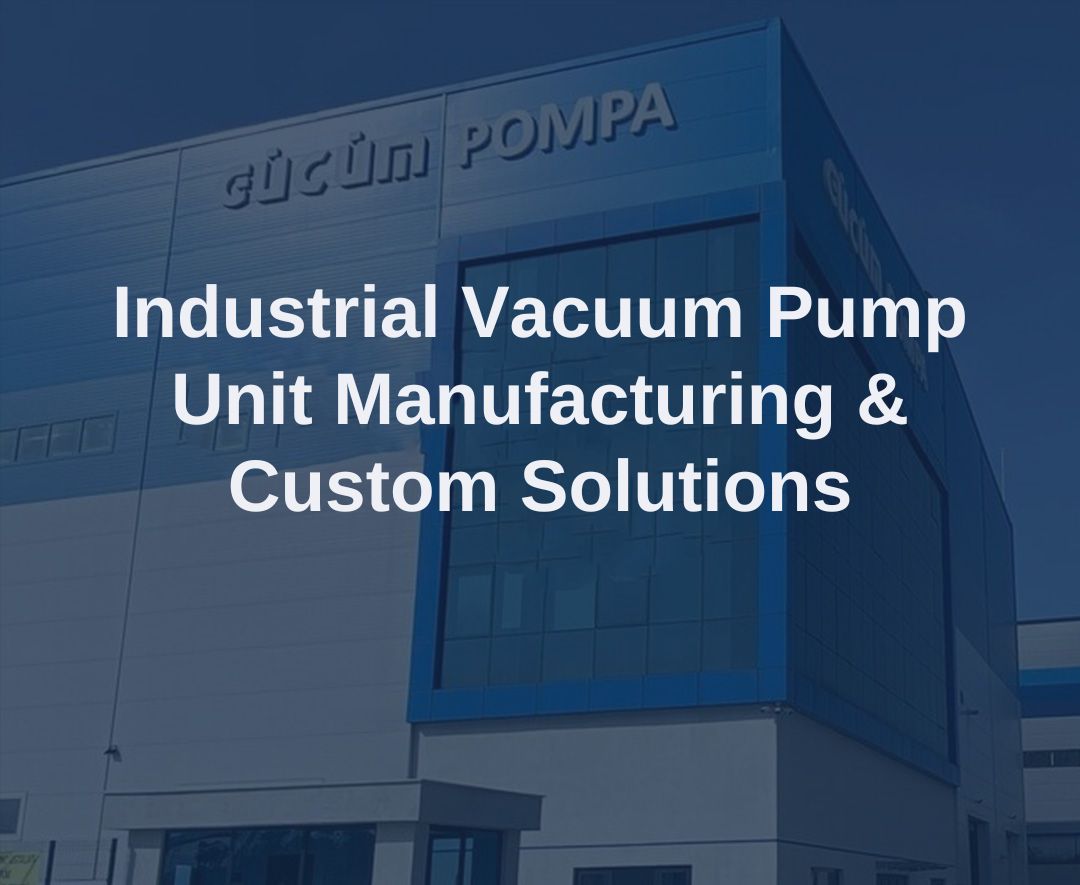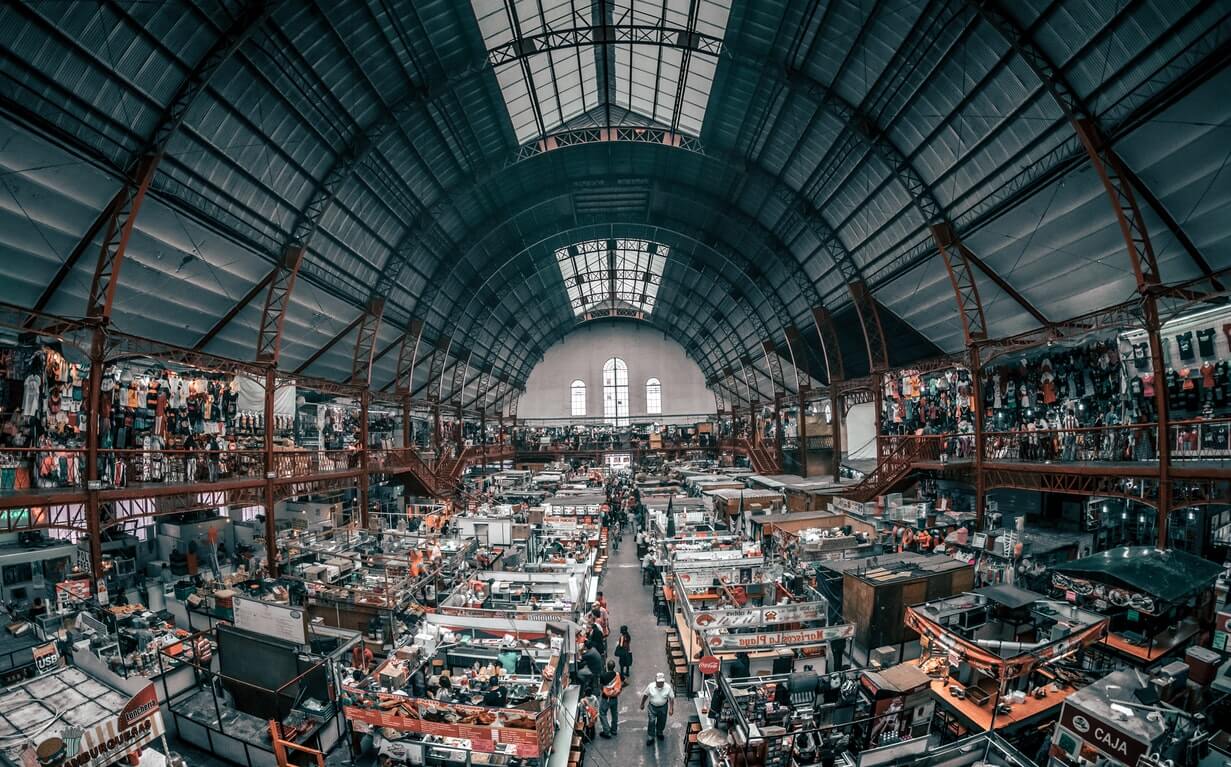Industrial Vacuum Pump Unit Manufacturing & Custom Solutions
Table of Contents
- What Benefits Do Custom Vacuum Solutions Bring to Your Business?
- Which Vacuum Pump Unit Suits Your Needs?
- Why Is Quality Important in Vacuum Pump Manufacturing?
- How Efficient Are Industrial Vacuum Systems?
- Vacuum Pump Unit Selection: Tips for Making the Right Decision
- Mistakes to Avoid in Industrial Vacuum Systems
What Benefits Do Custom Vacuum Solutions Bring to Your Business?
In industrial processes, vacuum solutions play a critical role in enhancing business efficiency and production quality. Custom-designed solutions tailored to your business, as opposed to standard vacuum systems, can optimize performance while reducing costs. So, what advantages do these solutions offer?
First, custom vacuum systems are perfectly tailored to your business’s needs. For instance, sectors like food packaging, pharmaceutical production, or metal processing have different vacuum requirements. A custom-designed vacuum pump unit provides consistent production by delivering the precise pressure levels and speed suited to your processes.
Energy efficiency is one of the greatest benefits of custom solutions. Standard systems can lead to unnecessary energy consumption, whereas custom units use only the required power. This reduces operational costs and promotes an environmentally friendly approach.
Custom vacuum solutions also offer advantages in terms of maintenance and durability. Systems designed for your business’s operating conditions have a lower risk of failure and are long-lasting. For example, in a facility handling chemicals, a vacuum unit made with corrosion-resistant materials can eliminate frequent maintenance needs.
Additionally, custom solutions provide flexibility in production processes. Modular designs allow quick adaptation to changing needs. For instance, if your production capacity increases, a custom vacuum system can be easily scaled. This boosts your business’s competitiveness and protects long-term investments.
Which Vacuum Pump Unit Suits Your Needs?
In industrial processes, vacuum pump units are critical for production efficiency and quality. However, every business has unique needs, and the wrong choice can increase costs. So, how do you select the right unit for your business?
First, you should evaluate your business’s needs. Sectors like food packaging, pharmaceutical production, or chemical processing require different vacuum levels and capacities. For example, a rotary vane pump providing high vacuum is suitable for precision applications, while roots pumps are better for high-volume operations.
Pump type selection is a critical factor. Oil-lubricated pumps offer high performance but require maintenance. Dry vacuum pumps, on the other hand, require less maintenance and are ideal for businesses handling chemicals. Choose based on your business’s environmental conditions and cleanroom requirements.
Energy efficiency should not be overlooked. Modern vacuum pumps are designed with energy-saving technologies. For instance, units with variable speed drives (VSD) optimize energy use, providing long-term cost savings.
Finally, custom solutions may meet your needs. Standard units may not always suffice; a vacuum system tailored to your business’s processes enhances efficiency and reduces maintenance costs. For example, pumps with special coatings are ideal for environments requiring high corrosion resistance.
Why Is Quality Important in Vacuum Pump Manufacturing?
In industrial processes, vacuum pumps play a critical role in the efficiency and reliability of production lines. However, the quality of these devices directly impacts your business’s performance and costs. So, why is quality so important in manufacturing?
First, high-quality vacuum pumps are durable and long-lasting. Pumps made with quality materials are more resistant to wear, corrosion, or mechanical failures. For example, in a facility handling chemicals, a low-quality pump can quickly fail, halting production.
Energy efficiency is another key aspect of quality. Well-designed vacuum pumps optimize energy consumption, reducing operational costs. Low-quality pumps consume excessive energy, harming your budget in the long run. Pumps manufactured with modern technologies, such as variable speed drives, offer this advantage.
Quality manufacturing processes also enhance pump performance. In precision applications, such as pharmaceutical or electronics production, consistent vacuum levels are critical. Low-quality pumps can cause pressure fluctuations, risking product quality.
Additionally, quality makes a difference in maintenance costs. High-quality vacuum pumps require less maintenance and minimize downtime. This ensures uninterrupted business operations and prevents unexpected stoppages. For example, pumps with special coatings or corrosion-resistant materials can operate reliably in harsh conditions for extended periods.

How Efficient Are Industrial Vacuum Systems?
Vacuum systems play a critical role in industrial processes by enhancing production speed and quality. However, their efficiency varies greatly depending on design, technology, and application. So, how efficient can these systems be?
Efficiency is primarily measured by energy consumption. Modern vacuum systems are equipped with innovative technologies like variable speed drives (VSD). This feature ensures the system uses only the necessary energy. For example, in precision processes like food packaging or pharmaceutical production, energy-efficient pumps can significantly reduce operating costs.
Pump design also directly impacts efficiency. Dry vacuum pumps require less maintenance and reduce energy loss compared to oil-lubricated pumps. Additionally, custom-designed systems optimized for a business’s needs prevent unnecessary energy consumption. For instance, rotary vane pumps offer higher efficiency in applications requiring high vacuum.
Maintenance ease is another key factor in efficiency. High-quality vacuum systems are designed with low failure rates and durable components. This reduces production downtime and boosts operational efficiency. For example, systems made with corrosion-resistant materials can operate reliably in chemical-handling facilities for extended periods.
Finally, custom solutions can maximize efficiency. Vacuum systems tailored to your business’s production volume and environmental conditions outperform standard models. For instance, modular designs can quickly adapt to changing needs, preventing energy waste.
Vacuum Pump Unit Selection: Tips for Making the Right Decision
Choosing the right vacuum pump unit directly impacts your business’s efficiency and costs. A wrong choice can lead to energy waste or production disruptions. Here are key tips to help you make the right decision.
First, conduct a needs analysis. Your business’s sector and processes determine the required vacuum level and capacity. For example, food packaging may require low vacuum, while semiconductor production demands high vacuum. Clarify your process’s speed, pressure, and volume requirements.
Pump type selection is a critical step. Oil-lubricated rotary vane pumps provide high vacuum but require maintenance. Dry pumps need less maintenance and are ideal for cleanroom applications. If handling chemicals, opt for pumps made with corrosion-resistant materials.
Energy efficiency must also be considered. Modern pumps with variable speed drives (VSD) reduce energy consumption and lower operating costs. Look for energy-efficient models for long-term savings.
Finally, focus on custom solutions. Standard pumps may not always meet your needs. A unit tailored to your business’s operating conditions and production volume enhances performance and reduces maintenance time. For example, modular designs can easily adapt to future changes in needs.
Mistakes to Avoid in Industrial Vacuum Systems
Vacuum systems are critical for enhancing efficiency in industrial processes. However, incorrect choices or applications can increase costs and disrupt production. Here are key points to avoid common mistakes.
The first mistake is selecting a system without a needs analysis. Each sector has different vacuum requirements; for example, pharmaceutical production requires precise vacuum levels, while food packaging can operate with lower pressure. Choosing a standard pump without clarifying needs leads to performance issues or energy waste.
Another common mistake is neglecting maintenance plans. Vacuum pumps require regular maintenance; neglecting oil changes, filter cleaning, or component checks leads to inevitable system failures. Oil-lubricated pumps, in particular, lose efficiency quickly if maintenance is ignored.
Choosing the wrong pump type is also a significant issue. For instance, using a non-corrosion-resistant pump in a facility handling chemicals shortens the device’s lifespan. Dry pumps are suitable for cleanroom applications, while oil-lubricated pumps perform better in high-vacuum scenarios.
Finally, ignoring energy efficiency is a costly mistake. Low-quality or outdated pumps consume excessive energy, increasing operating costs. Systems with modern technologies, like variable speed drives, optimize energy use and provide savings.
Made in Turkey.


